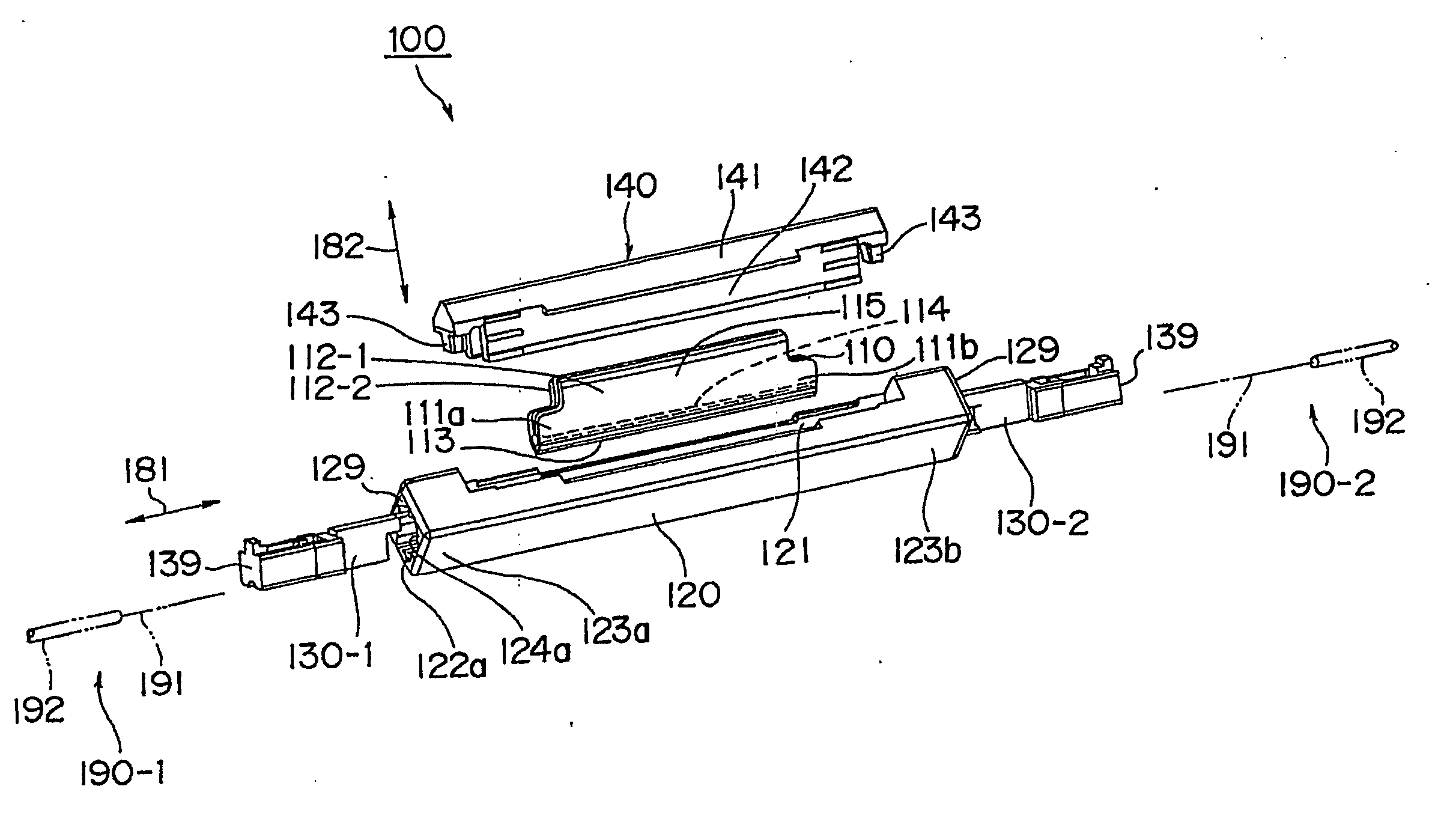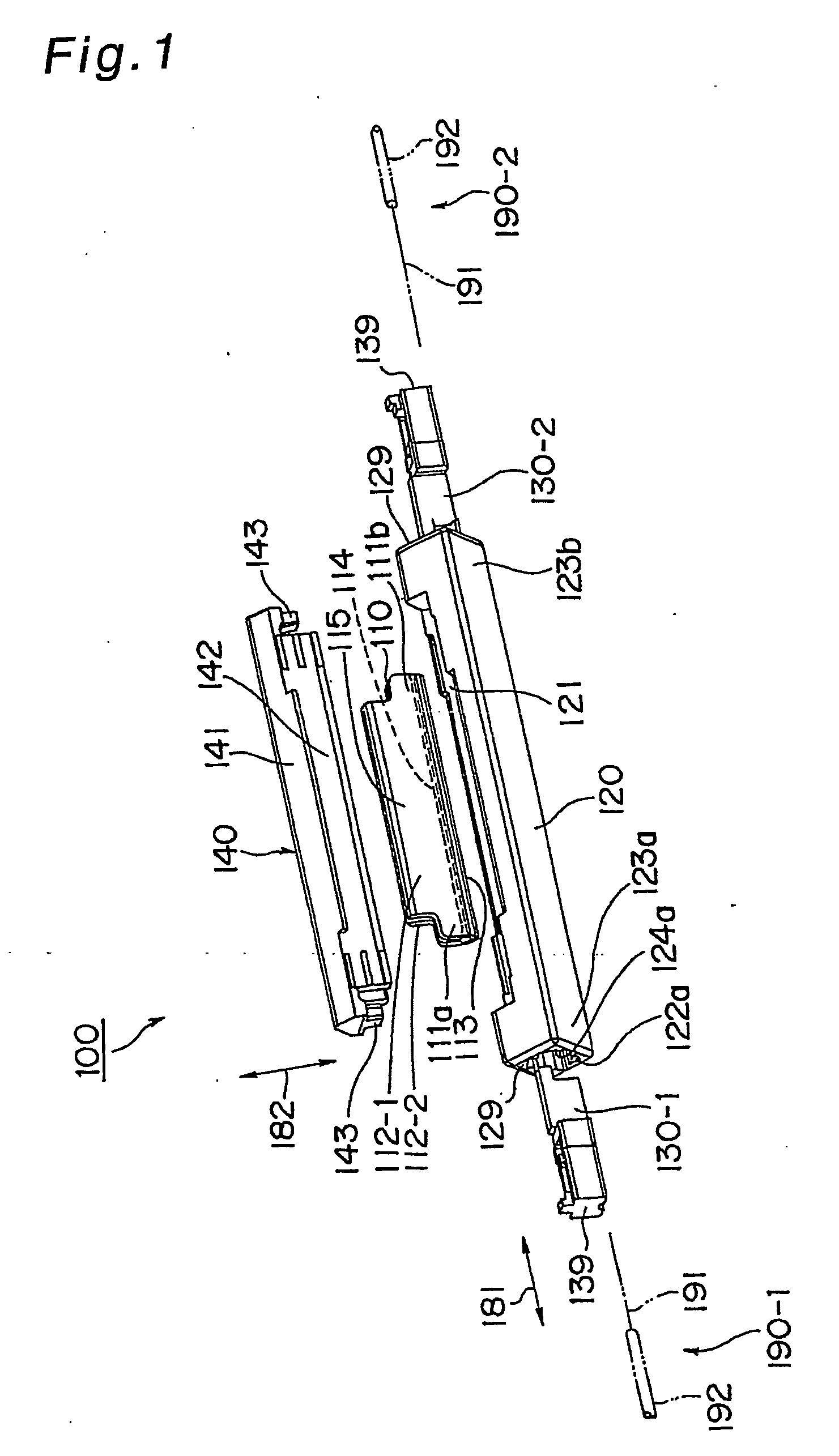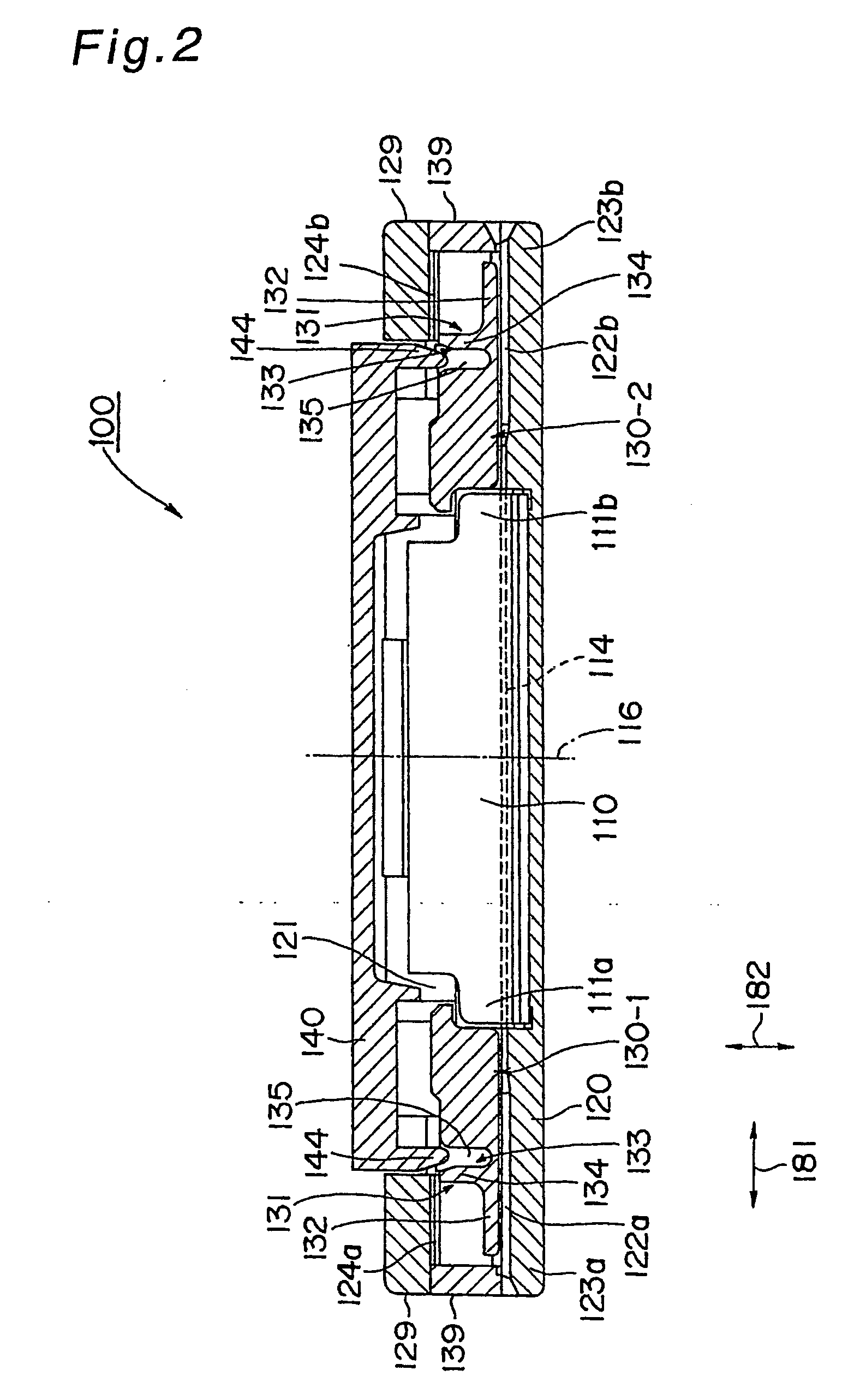Optical fiber mechanical splice with strain relief mechanism
a technology of optical fiber and mechanical splicing, which is applied in the field of members, can solve the problems of splicing with the use of the existing splicing tool as it stands, damage to the optical fiber, and possible loss of optical fiber by micro-bending, and achieves the effect of simple structur
- Summary
- Abstract
- Description
- Claims
- Application Information
AI Technical Summary
Benefits of technology
Problems solved by technology
Method used
Image
Examples
Embodiment Construction
[0039] An optical fiber splicing member and a method for splicing optical fibers which is carried out with the use of the splicing member as an embodiment of the present invention will be described below with reference to the drawings throughout which like parts are designated by like reference numerals.
[0040] As shown in FIGS. 1 and 2, the optical fiber splicing member 100 is provided with a joint element 110, a jacket 120, two end plugs 130 and a cap 140. Optical fibers 190-1 and 190-2 (generally referred to as “an optical fiber 190” in some cases) are inserted from the side of both ends of the optical fiber splicing member 100 as shown in the drawings when splicing the optical fibers 190. The optical fiber 190 in the embodiment is constituted of a bare fiber 191 formed of a glass material, and a buffer coating 192 for coating the bare fiber 191. In splicing the optical fibers by the optical fiber splicing member 100, the buffer coating 192 of each optical fiber 190 is removed be...
PUM
 Login to View More
Login to View More Abstract
Description
Claims
Application Information
 Login to View More
Login to View More - R&D
- Intellectual Property
- Life Sciences
- Materials
- Tech Scout
- Unparalleled Data Quality
- Higher Quality Content
- 60% Fewer Hallucinations
Browse by: Latest US Patents, China's latest patents, Technical Efficacy Thesaurus, Application Domain, Technology Topic, Popular Technical Reports.
© 2025 PatSnap. All rights reserved.Legal|Privacy policy|Modern Slavery Act Transparency Statement|Sitemap|About US| Contact US: help@patsnap.com



